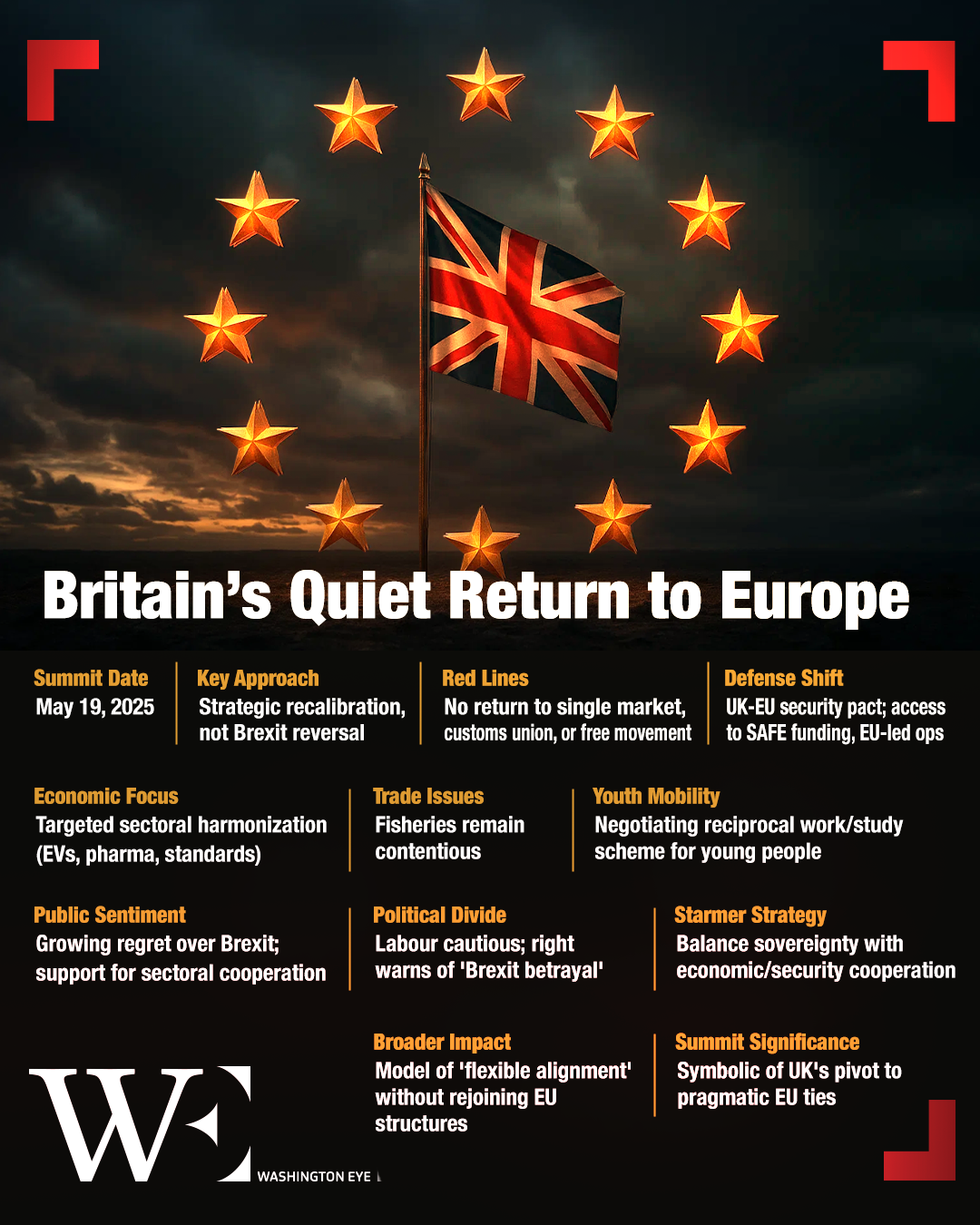As of July 2025, the United Kingdom is entering a new era of pragmatic diplomacy with its European neighbors. On May 19, Prime Minister Keir Starmer hosted the first formal UK-European Union summit since Brexit, marking a decisive step away from the combative tone of recent years. While rejoining the EU remains off the table, the summit produced a series of significant agreements that reflect a broader strategic reset.
Rather than reversing Brexit, Starmer’s government is pursuing targeted re-engagement—focusing on shared interests in defense, trade, youth mobility, and climate coordination. The aim is clear: to restore Britain’s economic competitiveness and geopolitical relevance while respecting the boundaries set by the 2016 referendum.
This approach reflects both necessity and opportunity. On one hand, the UK continues to grapple with economic headwinds, including trade frictions and a shrinking labor pool. On the other, global challenges such as the war in Ukraine, climate volatility, and energy insecurity demand closer cooperation with European allies. Starmer’s vision is not to rewind Brexit—but to reshape its legacy into something more functional, stable, and globally connected.
The agreements from the summit speak volumes. The UK will now participate in EU-led defense programs and gain access to the €150 billion SAFE fund, supporting joint military research, procurement, and intelligence-sharing. This marks the most significant security convergence between Britain and the EU since Brexit.
On trade, a new veterinary agreement will streamline sanitary checks on food and agriculture, easing export headaches for UK businesses. And a 12-year fisheries deal, allowing limited EU access to UK waters, underscores the spirit of compromise at the heart of this new chapter.
Meanwhile, a youth mobility scheme will allow 18- to 30-year-olds to live and work in each other’s territories—an initiative welcomed by educators and employers alike. Negotiations are also underway to align emissions trading systems, boosting climate cooperation and price stability.
These moves are not about rejoining EU institutions, but about rebuilding influence and trust. By choosing functional integration over ideological isolation, Starmer is positioning Britain as a European stakeholder without forfeiting sovereignty.
But what does this mean for the United States? London’s stalled efforts to secure a comprehensive trade deal with Washington have long been hindered by regulatory divergence from the EU. If the UK selectively aligns with European standards—particularly in key sectors like digital trade, electric vehicles, and pharmaceuticals—it could become a more attractive, stable partner for U.S. investors and exporters.
This convergence might also create opportunities for youth exchanges, tech cooperation, and mutual recognition agreements between the UK and the U.S. Rather than limiting transatlantic ambitions, the EU reset may unlock new paths for engagement with Washington.
Critics at home are less convinced. Hardline Brexiteers warn that sectoral alignment erodes sovereignty. But for many in business, education, and defense, the benefits of stability and access outweigh the symbolism of separation.
The summit closed with a pledge for annual UK-EU meetings—a quiet but powerful signal that long-term partnership is back on the agenda. This isn’t Britain going backward. It’s Britain going forward—on its own terms, but not alone.
If managed well, this re-engagement could set the stage for a new type of transatlantic diplomacy. One not built on nostalgia, but on pragmatism and shared strategic interests.
Britain’s relationship with Europe is evolving. Its relationship with America could be next.














